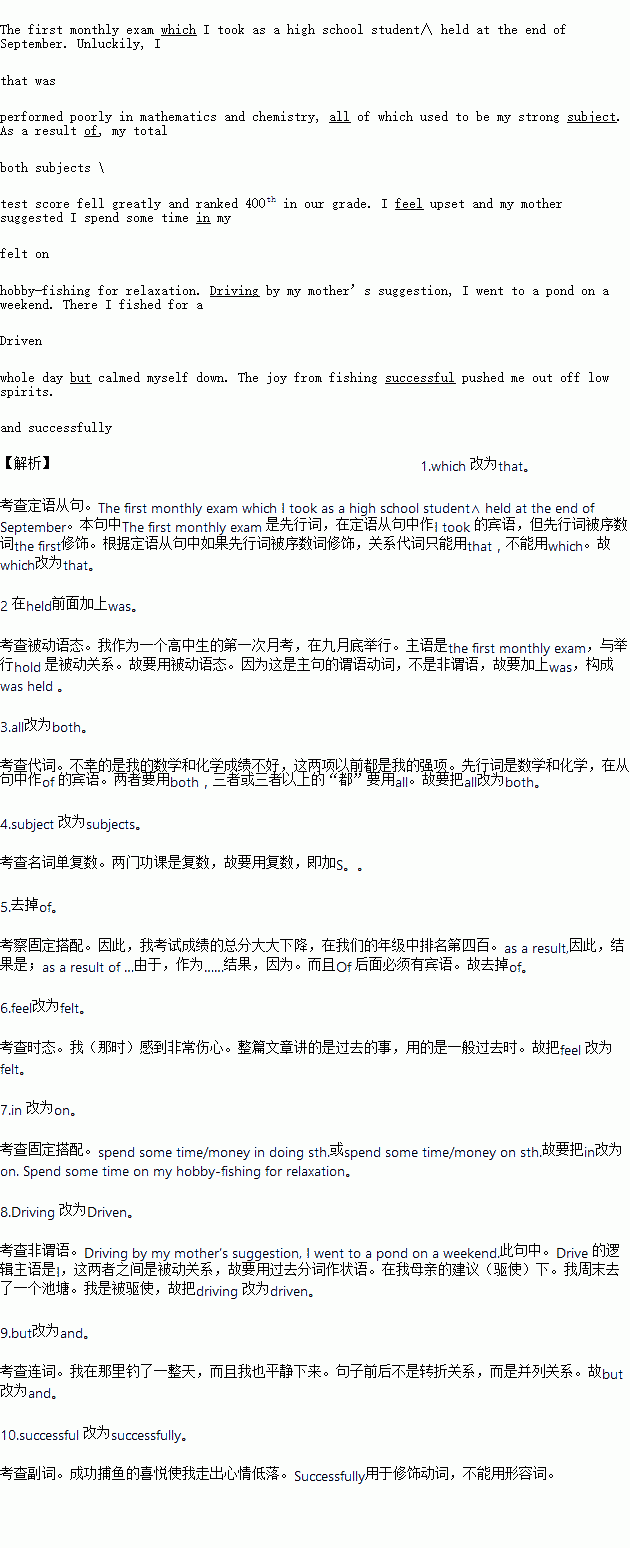题目内容
假定英语课上老师要求同桌之间交换修改作文,请你修改你同桌写的以下作文。文中共有10处语言错误,每句最多有两处。每处错误仅涉及一个单词的增加、删除或修改。
增加:在缺词处加一个漏字符号(∧),并在其下面写出该加的词。
删除:把多余的词用斜线(\)划掉。
修改:在错的词下划一横线,并在该词下面写出修改后的词。
注意:1.每处错误及其修改均仅限一词。
2.只允许修改10处,多者(从第11处起)不计分。
The first monthly exam which I took as a high school student held at the end of September. Unluckily, I performed poorly in mathematics and chemistry, all of which used to be my strong subject. As a result of, my total test score fell greatly and ranked 400th in our grade. I feel upset and my mother suggested I spend some time in my hobby—fishing for relaxation. Driving by my mother’s suggestion, I went to a pond on a weekend. There I fished for a whole day but calmed myself down. The joy from fishing successful pushed me out off low spirits.
 名校课堂系列答案
名校课堂系列答案

 nd somebody who works around you complaining(抱怨) all the time, don't you? 1. About 70% of Americans say being around nonstop complainers sometimes has a bad influence on them. Luckily, here are 4 tips to help form positive patterns.
nd somebody who works around you complaining(抱怨) all the time, don't you? 1. About 70% of Americans say being around nonstop complainers sometimes has a bad influence on them. Luckily, here are 4 tips to help form positive patterns.